Central America
Salvadoran beaches become regional references for surfing

The 2020 Surf City El Salvador ALAS 4 Stars Tour was carried out under strict biosafety protocols. Which strengthened El Salvador’s position as a tourist destination and regional reference for surfing.
According to Morena Valdez, Minister of Tourism, the event not only showcased the quality of El Salvador’s waves. But it also proved to the world that El Salvador is an excellent destination for travel. Above all, because the country has the Safe Travels stamp granted by the World Travel and Tourism Council for the good handling of the pandemic.
To ensure people’s and athletes’ safety, the event was closed to the public during the competitions. However, all performances and activities were broadcasted live.
Thanks to the articulated work of different governmental institutions, the 2020 Surf City El Salvador ALAS 4 Stars Tour was organized, offering a top-level tournament to competitors.
Yamil Bukele, President ad-honorem of INDES, highlighted the importance of the event, because it gives national surfers the opportunity to get acquainted with the best athletes of the continent.
Central America
Mexico’s president proposes regional economic summit at CELAC
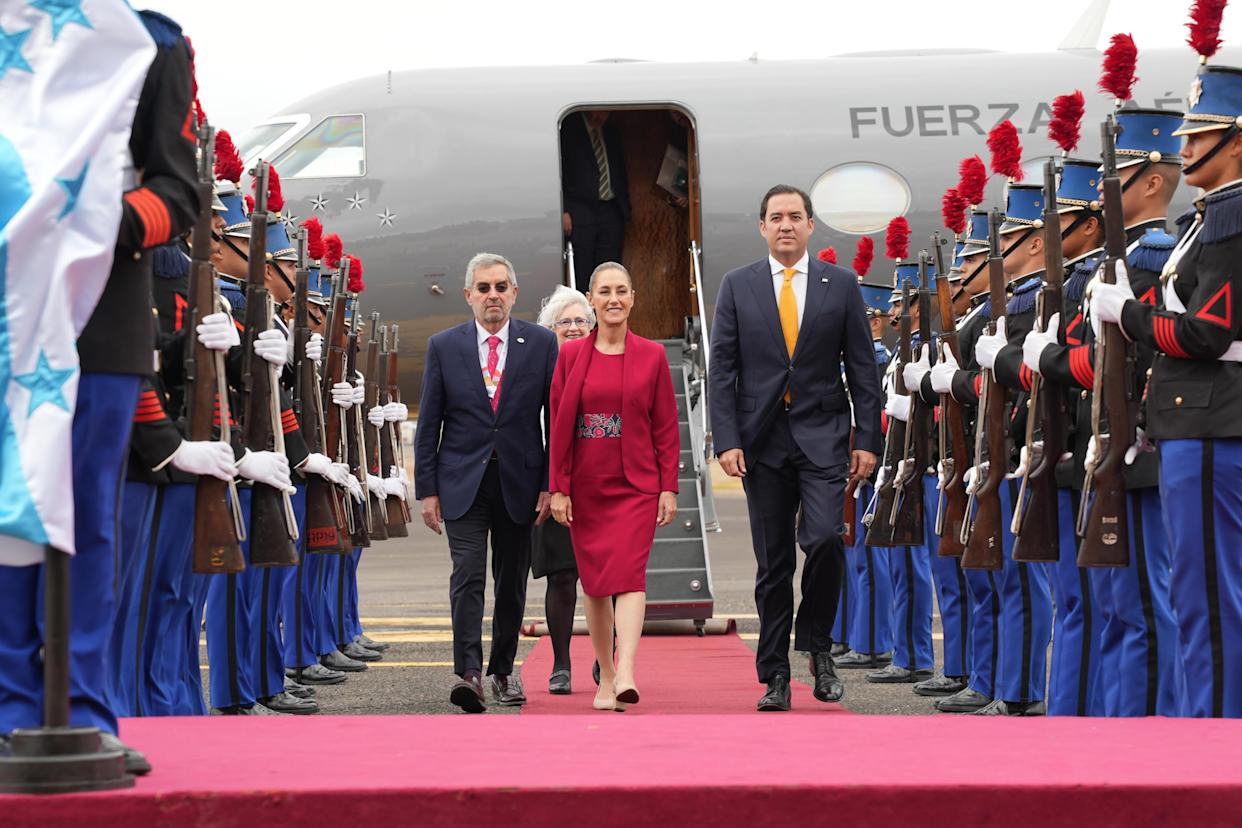
Mexican President Claudia Sheinbaum held bilateral meetings on Wednesday with the presidents of Uruguay (Yamandú Orsi), Guatemala (Bernardo Arévalo), Brazil (Luiz Inácio Lula da Silva), and Colombia (Gustavo Petro) ahead of her participation in the IX Summit of the Community of Latin American and Caribbean States (CELAC) in Honduras.
“Before the CELAC Summit, we met with the presidents of Uruguay, Guatemala, Brazil, and Colombia. We are sister nations that share a progressive vision,” Sheinbaum posted on social media.
During the meetings, Sheinbaum called for a Summit on Latin America’s Economic Wellbeing, in response to the ongoing U.S. tariff war. She stressed the urgent need for unity and solidarity among Latin American and Caribbean governments and peoples to deepen regional integration.
Amid the new round of tariffs imposed by U.S. President Donald Trump, Sheinbaum reiterated her belief that the economic integration Mexico has with North America should be extended to the entire continent.
Central America
Colombia to host fourth EU-CELAC Summit in November
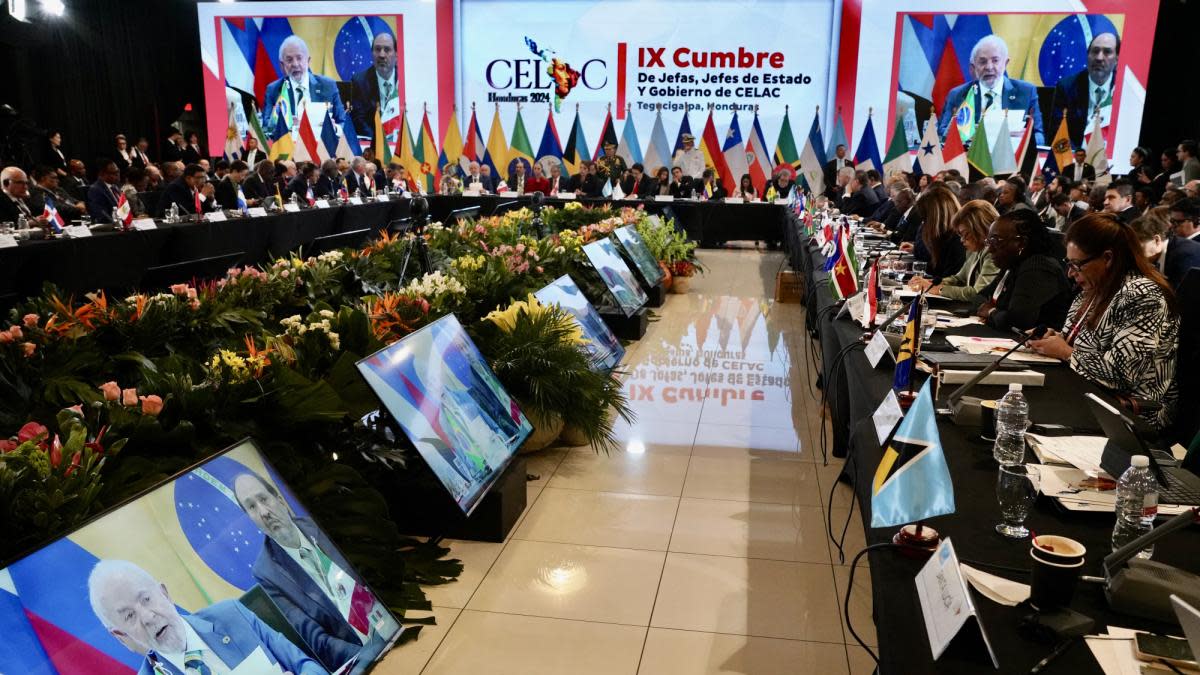
The Fourth Summit between the European Union (EU) and the Community of Latin American and Caribbean States (CELAC) will take place on November 9 and 10 in Santa Marta, Colombia, according to a joint statement released Wednesday by the Colombian government and the European Council.
The summit will be co-chaired by Colombian President Gustavo Petro, in his role as pro tempore president of CELAC, and European Council President António Costa, the statement added.
The last EU-CELAC summit took place in July 2023 in Brussels, when both blocs agreed to hold these meetings every two years.
The summit brings together the 27 EU member states and the 33 CELAC countries, representing 14% of the global population, 21% of global GDP, and one-third of the members of the United Nations, the communiqué noted.
Central America
CELAC condemns unilateral sanctions in ‘Tegucigalpa Declaration’
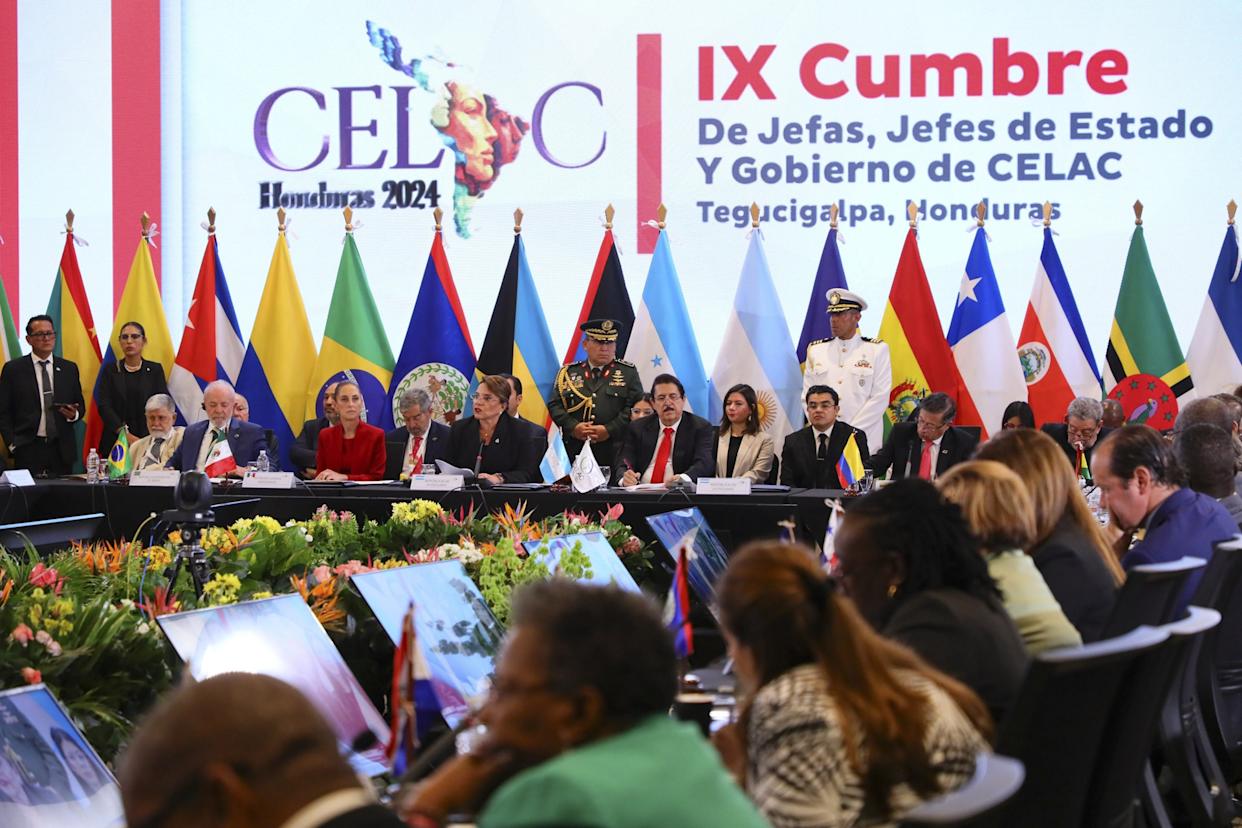
The Community of Latin American and Caribbean States (CELAC) formally rejected on Wednesday the “imposition of unilateral coercive measures that violate International Law, including those that restrict international trade.”
This position was expressed in the “Tegucigalpa Declaration,” which was “adopted by sufficient consensus among 30 member states” out of the 33 countries that make up the regional organization.
According to Honduran Foreign Minister Eduardo Enrique Reina, there was “sufficient consensus among 30 states” to adopt the declaration, with three countries distancing themselves from the resolution.
“Argentina, Paraguay, and Nicaragua decided not to adopt the declaration for their own reasons,” Reina explained.
-

 Internacionales4 days ago
Internacionales4 days agoErik Prince Backs Ecuador’s Daniel Noboa in Fight Against Crime and “Narcoterrorism”
-

 Central America4 days ago
Central America4 days agoGuatemala’s Legal Chief Shot Dead in Parking Lot: Investigation Underway
-

 Central America2 days ago
Central America2 days agoHonduras Hosts CELAC Summit Amid Regional Concern Over U.S. Deportations
-

 Central America2 days ago
Central America2 days agoMulino and Orsi Highlight Shared Vision After Panama Joins Mercosur as Associate State
-

 International2 days ago
International2 days agoTeachers in Southern Mexico Bring Education to Stranded Migrant Children
-

 International1 day ago
International1 day agoRussia and US to Meet in Istanbul for Diplomatic Talks on April 10
-

 Central America2 days ago
Central America2 days agoTrump Administration Asks Supreme Court to Block Return of Deported Salvadoran
-

 Central America1 day ago
Central America1 day agoAudit Exposes Major Breaches in Panama Canal Port Concession, $300 Million Owed to State
-

 International1 day ago
International1 day agoScience Brings Back the Extinct Direwolf with Successful De-Extinction Project
-

 International1 day ago
International1 day agoMaduro Announces Economic Emergency Decree Amid Growing Tensions with the U.S.
-

 Sports1 day ago
Sports1 day agoNeymar Returns to Santos Training After Month-Long Injury Layoff
-

 International1 day ago
International1 day agoTransgender Student Arrested at Florida Capitol for Using Women’s Restroom Under New State Law
-

 International3 hours ago
International3 hours agoMerengue concert turns to mourning as Jet Set collapse claims 136 lives
-
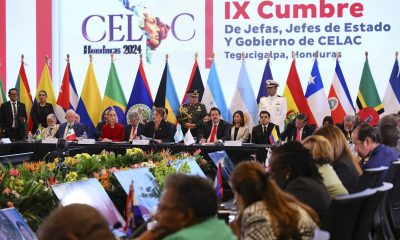
 Central America3 hours ago
Central America3 hours agoCELAC condemns unilateral sanctions in ‘Tegucigalpa Declaration’
-
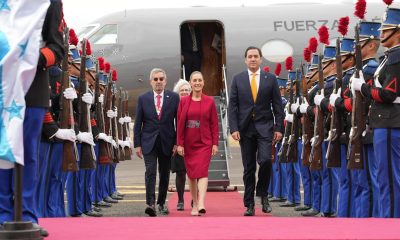
 Central America3 hours ago
Central America3 hours agoMexico’s president proposes regional economic summit at CELAC
-
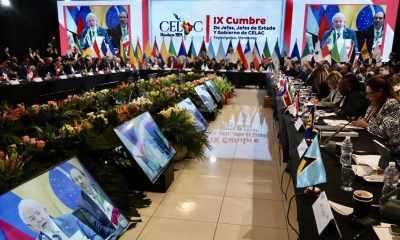
 Central America3 hours ago
Central America3 hours agoColombia to host fourth EU-CELAC Summit in November















